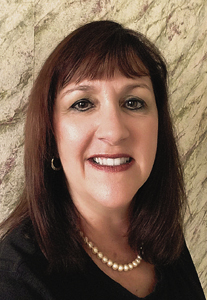 You’ve been asked to take a look at a physician’s office practice after a recent merger. Do physician office laboratories (POL) need to follow the same CLIA standards as traditional clinical laboratories and point-of-care testing programs?
You’ve been asked to take a look at a physician’s office practice after a recent merger. Do physician office laboratories (POL) need to follow the same CLIA standards as traditional clinical laboratories and point-of-care testing programs?
A: All clinical laboratory testing is subject to CLIA regulations, and the type of CLIA certificate for the POL should be considered along with the test menu to be offered, devices that will be used, and staff performing testing. There are several CLIA certificates. For example, if the POL will be performing only waived testing, then a CLIA Certificate of Waiver is appropriate. If the POL will be performing wet mounts, fern tests, and other microscopy, the Certificate of Provider Performed Microscopy Procedures is needed.
The next piece to consider when non-waived testing is planned is to look at the assigned complexity level of the test device or kit and the qualifications of the staff who will be involved in testing. For details on the responsibilities and qualifications of laboratory staff, refer to the CLIA regulation online, 42 CFR.493.1351 Subpart M—Personnel for Non-waived Testing. The CLIA site also contains a link to the FDA website for test complexity classifications.
Finally, check your specific state clinical laboratory agency. States must meet CLIA requirements, but some exceed them. You may find restrictions in the personnel qualifications, education, and proficiency rules for the testing location. State and local municipalities may also require additional laboratory permits to be filed.
The physician in the office laboratory is not a pathologist. But does she qualify to be the CLIA laboratory director automatically?
Not necessarily. CLIA allows non-laboratory trained physicians to qualify to be the named laboratory director, but the physician must also be professionally licensed in the state where the laboratory is located and complete 20 hours of continuing medical education in laboratory practice. More information on courses for physicians is available from www.cms.gov. The course certificate, in addition to the physician’s professional license, is required when making an initial application or changing from certificate of waiver to a higher level.
Can one of our pathologists become the laboratory director for the POL if the physician is unable or unwilling to fill this role?
Yes, however a CLIA Laboratory Director is not allowed to oversee more than five non-waived laboratories.
Does the POL have to perform proficiency testing (PT) if it only performs waived testing?
CLIA does not require PT for waived testing; however, it is always best to check with your state and local laboratory division, as their requirements may be more stringent.
Are documented training and competency assessments of testing personnel required in a POL?
CLIA does require documented training and annual competency assessments for testing personnel performing non-waived tests. While waived testing is less restrictive, it is laboratory best practice—and the responsibility of the laboratory director—to ensure adequate training and competency of all testing personnel.
Does the POL have to be accredited by an agency such as the Joint Commission to maintain its licensure?
No. Accreditation for a POL that is covered by a Certificate of Waiver or Certificate of Compliance is not required to be accredited. All laboratories, however, are subject to inspection by the Centers for Medicare and Medicaid Services, state, or other agencies.
Edwina Szelag, MHM, BSMT (ASCP), is the founder and executive director of On-Site Laboratory Consulting LLC. Szelag has significant interest and extensive experience in point-of-care testing. Edwina is also the 2006 recipient of the AACC Critical and Point-of-Care Testing Coordinator of the Year Award.
+Email: [email protected]